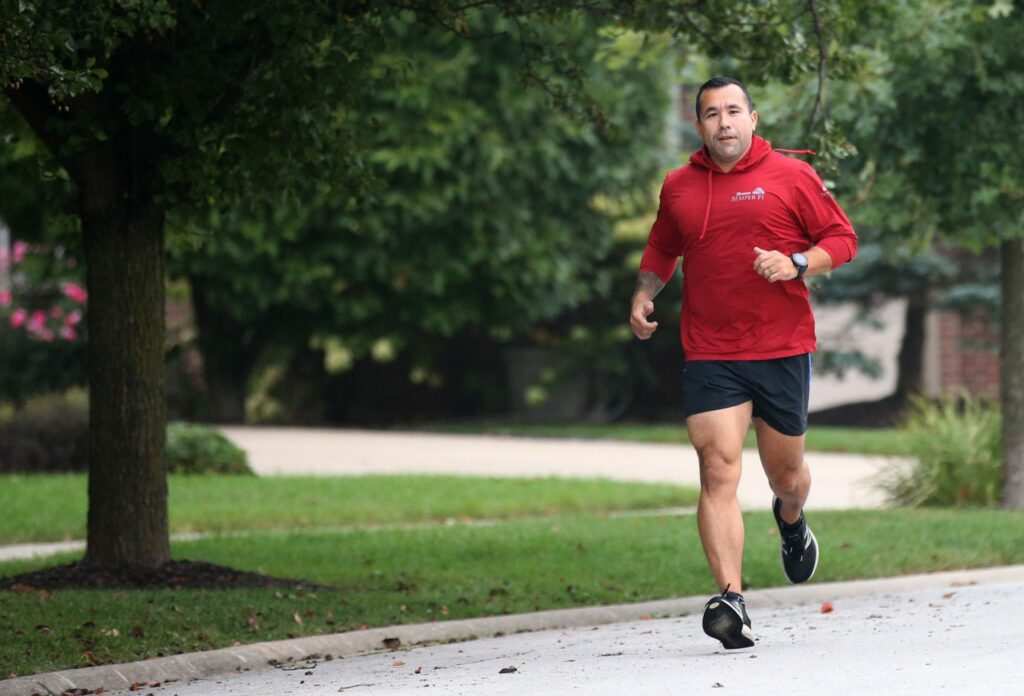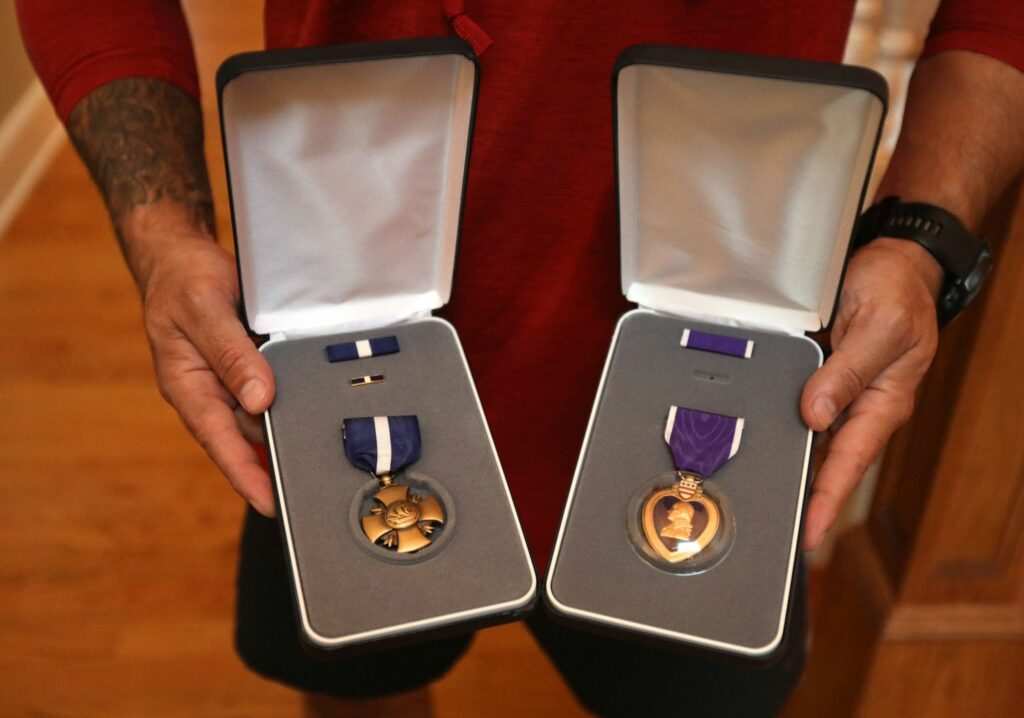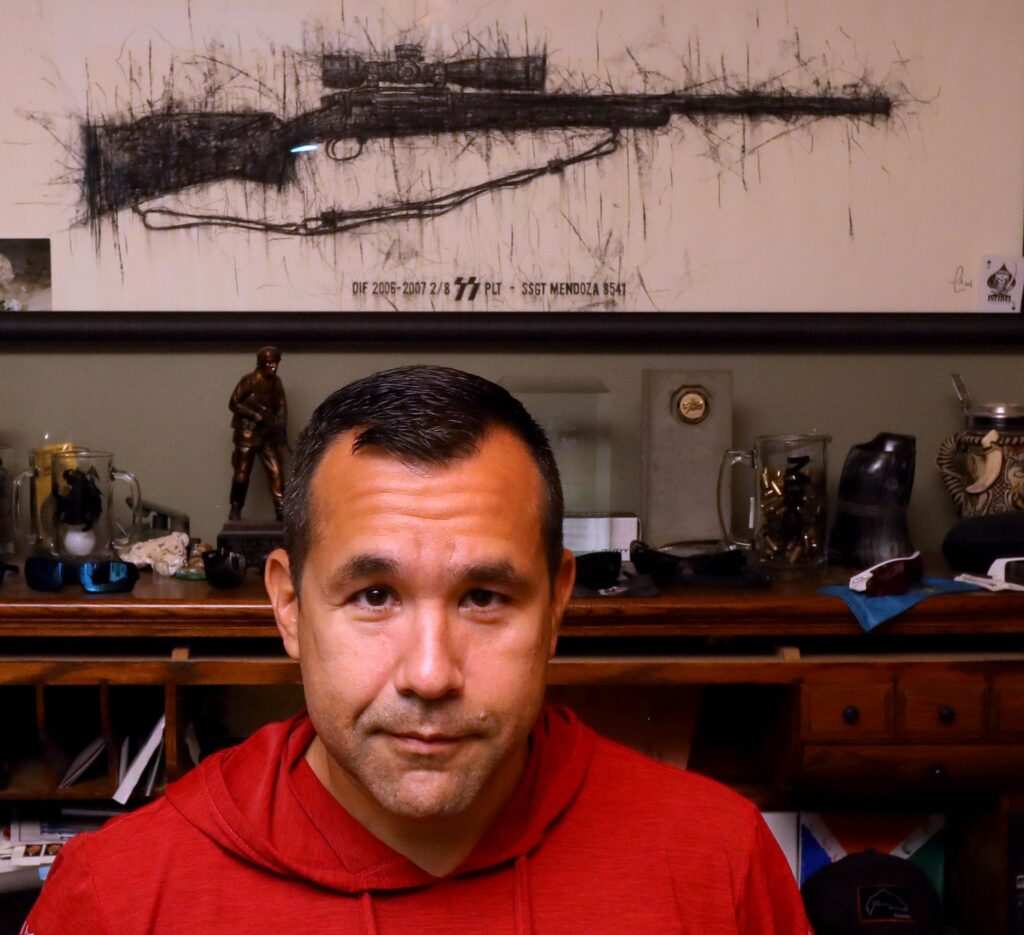On Sunday morning, Mike Mendoza will line up on Columbus Drive with 35,000 other runners for the start of the Chicago Marathon. If all goes to plan, he’ll cross the finish line a couple hours later — then head straight to O’Hare International Airport, hop on a flight to Boston and race 26.2 more miles the next morning.
When COVID-19 forced Boston Marathon officials to push the race, usually held in April, to Oct. 11, it gave runners speedy enough to qualify for Boston a unique, if uniquely daunting, challenge: run two iconic U.S. marathons back-to-back, saving Boston’s notorious hills for the finish.
Mendoza, 42, of Mokena, is “kind of dreading” the prospect. But after qualifying for both marathons, the opportunity was too good to pass up.

“It’ll be worth it,” he said. “That’s how a good story starts.”
It won’t be the biggest athletic feat Mendoza has taken on. In 2017, he set the world record for the most 70.3-mile triathlons completed in a year while raising funds for the nonprofit that helped his family after he was severely injured while serving in the U.S. Marine Corps. He has raised more than $70,000 for Semper Fi & America’s Fund since 2017 and aims to raise another $1,000 per marathon this year.
But Mendoza also hopes his racing inspires others, particularly other service members, to consider using sports and recreation as a tool for physical and mental recovery.
“It’s an outlet,” he said. “It’s kind of like hitting that reset button for the day or even for the hour.”
Mendoza, who grew up in the Douglas Park neighborhood, joined the Marines after graduating high school in 1997 and became a sniper. In 2006, while his team was protecting convoys traveling through an area north of Fallujah in Iraq, a grenade exploded next to Mendoza, leaving him with extensive internal injuries that included two collapsed lungs and required doctors to remove his spleen and a portion of his small intestine.

That’s when his family first encountered Semper Fi & America’s Fund, which helps injured service members and their family members. Mendoza said the organization offered financial assistance that helped cover travel expenses and international phone bills that racked up quickly as his wife, Kelly, worked to stay in touch with Mendoza and his doctors as he was transferred from Iraq to Germany and eventually the U.S.
Mendoza recovered but retired from the Marines the following year to begin working as a contractor for the State Department, a role that would allow more time at home with his family he said. Mendoza said he now works for the Department of Defense.
He later reconnected with Semper Fi & America’s Fund, attending events with other service members, saying it helped to “be around like-minded people.” Then, in 2015, the organization invited him to run the Marine Corps Marathon in Arlington, Virginia, and Washington.
Mendoza had trained extensively while in the Marines and always stayed in shape. As a kid, and the only one in his group of friends who didn’t own a bike, he ran to keep up. But he never treated running as a sport. He finished in 3 hours, 26 minutes and caught the bug, signing up for everything from 5ks to triathlons.

“I saw a progression of who I started to become,” Mendoza said. “I was staying in shape but now I also had a goal, a purpose.”
Two years later, he decided to try to break the world record for completing the most 70.3-mile triathlons — each of which includes a 1.2-mile swim, 56-mile bike ride and 13.1-mile run — in a year and use the effort to raise money for Semper Fi & America’s Fund, which helped Mendoza buy his triathlon bike. The mark to beat was 23.
He since has raised more than $70,000, and though Guinness World Records credits him with 24 races in 2017, Mendoza said he raced two more triathlons that did not count because the swim portions were shortened because of weather, plus two extra marathons.
After a year in which major races were canceled in 2020, Mendoza was eager to get back on a starting line, though he isn’t aiming for a personal best time in Chicago or Boston. He feels stronger after spending more time weightlifting last year but didn’t get as much endurance training in as he would have like.
Then there’s the hectic travel schedule: a trip to Boston to pick up race materials before running the Chicago Marathon on Sunday, flying back to Boston that afternoon, then waking up at 4 the next morning to catch a bus to his second starting line.
Instead, he’s hoping to set an example for others, including his family — a 12-year-old daughter, who’s a gymnast, 15-year-old son, who’s a wrestler, and Kelly, who will run her first marathon in Chicago on Sunday, though they’ll each run at their own pace.
Mendoza also wants to “see how much I have left in the gas tank” at the finish line.
“I don’t want to be like, ‘Darn it, I should have run harder, or maybe not doubted myself as much,’” he said. “We always have doubts about something, but when you finish, it’s so satisfying.”
___
© 2021 Chicago Tribune
Distributed by Tribune Content Agency, LLC.



